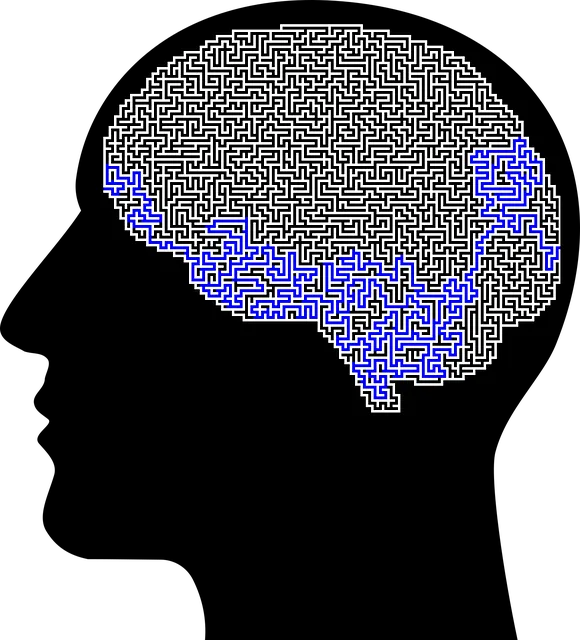Denver Kaiser Permanente combats the stigmatization of mental illness through comprehensive programs that prioritize cultural sensitivity in healthcare. They address systemic biases, ensure diverse provider representation, and promote education campaigns to dispel myths surrounding mental health. Their initiatives include a Mental Wellness Podcast Series, training for healthcare providers on cultural competency, and community engagement workshops. These efforts aim to improve self-esteem, encourage early intervention, and enhance the overall mental well-being of the Denver community by fostering understanding, empathy, and support networks.
Mental illness stigma, a pervasive barrier to seeking help, profoundly affects individuals and communities. This article explores efforts to reduce this stigma, focusing on the innovative strategies employed by Denver Kaiser Permanente (DKP). We delve into their initiatives, emphasizing community engagement and education as powerful tools in breaking down barriers to mental health care access. By examining these approaches, we aim to illuminate paths towards a more inclusive and supportive society for those facing mental health challenges.
- Understanding the Impact of Stigma on Mental Health
- Strategies and Initiatives by Denver Kaiser Permanente
- Community Engagement and Education: Breaking Down Barriers
Understanding the Impact of Stigma on Mental Health

Stigma surrounding mental illness can have profound effects on an individual’s well-being, often leading to increased isolation and a reluctance to seek help. This social construct, deeply ingrained in many societies, perceives mental health conditions as personal failings or weaknesses, which can deter people from discussing their struggles openly. At Denver Kaiser Permanente, we recognize the significant impact of this stigma on the lives of our members. It may cause individuals to internalize negative beliefs about themselves, leading to decreased self-esteem and a sense of shame, hindering their ability to manage their moods effectively.
Understanding the effects of stigma is crucial in developing strategies to combat it. By fostering cultural sensitivity in mental healthcare practice, we can create an environment that supports and empowers individuals dealing with mental health challenges. This involves addressing systemic biases, ensuring diverse representation among healthcare providers, and promoting education campaigns that dispel myths and stereotypes associated with mental illness. Through these efforts, Denver Kaiser Permanente aims to improve self-esteem and encourage early intervention, ultimately enhancing the overall mental health of our community.
Strategies and Initiatives by Denver Kaiser Permanente

Denver Kaiser Permanente has been at the forefront of mental illness stigma reduction through innovative strategies and initiatives. One notable effort is their Mental Wellness Podcast Series Production, which offers a platform for open discussions on mental health topics, fostering understanding and empathy among listeners. This series not only educates but also humanizes mental health struggles, helping to break down barriers and promote acceptance.
Additionally, the organization prioritizes Healthcare Provider Cultural Competency Training to ensure that medical professionals are equipped with the knowledge and skills to address mental health concerns sensitively and effectively. By training its staff on cultural awareness, Denver Kaiser Permanente aims to create a more inclusive and supportive environment for patients dealing with depression prevention and other mental health issues. These initiatives reflect the organization’s commitment to destigmatizing mental illness and improving patient care in the Denver community.
Community Engagement and Education: Breaking Down Barriers

In Denver, Kaiser Permanente has been at the forefront of Mental Illness Stigma Reduction Efforts, emphasizing Community Engagement and Education. Their initiatives focus on breaking down barriers by fostering open conversations about mental health within local communities. Through workshops, seminars, and outreach programs, they educate folks on recognizing signs of various mental health conditions, promoting empathy, and encouraging early intervention. This approach not only aids in the Mood Management but also facilitates Emotional Healing Processes by normalizing discussions around mental illness.
By involving community leaders, healthcare professionals, and individuals with lived experiences, Kaiser Permanente ensures that education is inclusive and culturally sensitive. These collaborative efforts have proven effective in reducing stigma, fostering support networks, and empowering individuals to seek help without fear of judgment.
Stigma reduction efforts, such as those implemented by Denver Kaiser Permanente, play a pivotal role in fostering inclusive communities that support individuals facing mental health challenges. By integrating education and community engagement strategies, these initiatives break down barriers, promote understanding, and ultimately improve access to care. As we continue to navigate the complex landscape of mental health, it is through collective action and persistent efforts like these that we can create a more accepting society for everyone, regardless of their mental health status.

